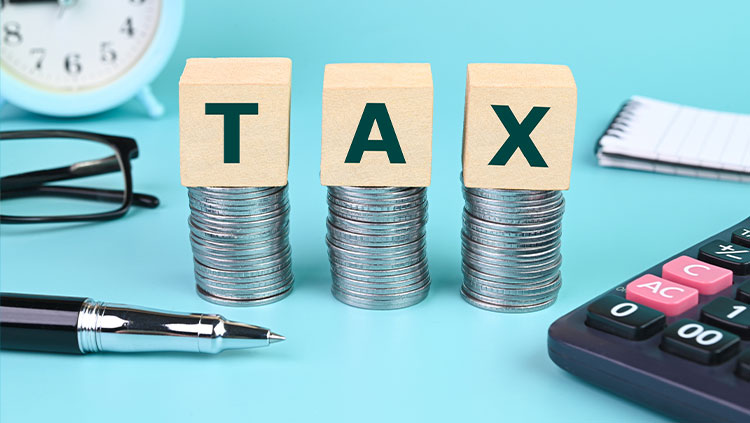Reasonable care key for practitioners at 2021 tax time
Content Summary
- Taxation
- Public practice
- Practice management

This article was current at the time of publication.
The Australian Tax Office (ATO) has started full processing of 2020–21 tax returns with the objective of beginning to pay refunds from mid-July.
For tax practitioners, that means getting fully prepared – doing things like updating your client list, checking clients’ lodgement program due dates, advising the ATO when a return is not required and reviewing online security to protect clients’ data.
It’s also essential to be across key changes and new ATO initiatives when completing the latest returns.
COVID-19 support measures
These include measures and support around COVID-19, personal and business income tax changes, tax incentives and a raft of further changes linked to depreciation, asset write-offs, losses, investments and small business concessions.
On COVID-19 measures, for example, the ATO has specified that if an employer or business received a cash flow boost credit in the 2020–21 financial year, it may need to be recorded in their tax return. Even though this is tax-exempt income, this information may be needed for other purposes.
Check the relevant tax return instructions for guidance on your particular clients’ business structures.
Key changes for 2021–21
The ATO’s website provides an overview of the key changes applicable for the 2021–21 tax year, while a spokesperson for the regulator points to other support measures available to practitioners, including lodgement deferral options.
“We understand that this can be a busy time for the tax profession,” the ATO spokesperson says.
“Support is available to all tax professionals at any time and we are working hard to ensure the help is tailored and personalised.
“If a tax professional needs more time to meet specific due dates, we have a range of deferral options available.”
The type of deferral that can be accessed will depend on how much extra time is required and the kind of obligation. Deferral applications can be lodged through the ATO’s Online Services for Agents (OSfA).
“If an agent needs more help to keep on top of lodgements, our supported lodgement program could be suitable,” the spokesperson noted.
“This program is designed for those who have been affected by issues such as ill-health, loss of a key staff member, COVID-19, or those who are generally overwhelmed.”
The ATO’s program team will work with agents to co-design a lodgement plan that will bring their program back on track by:
- reviewing their client list and all outstanding obligations
- removing clients they are not actively managing
- prioritising overdue and upcoming lodgements
- applying lodgement deferrals and or suspensions of compliance action where appropriate
- following up with the agent to review progress.
Agents can request a supported lodgement program through OSfA by selecting the topic “Debt and Lodgement” and then “Supported Lodgement Program”.
The ATO has also developed other resources to support tax professionals – including Tax Time Toolkits for individuals and small businesses – which are available in multiple languages.
Exercising reasonable care
The framework around the obligations of tax practitioners to take “reasonable care” when preparing returns for clients is an important element of the Code of Professional Conduct within the Tax Agent Services Act 2009.
More specific obligations of practitioners can be found in Code items 9 and 10.
Code item 9 requires registered tax practitioners to take reasonable care ascertaining a client’s state of affairs to the extent that is relevant to a statement they are making or a thing they are doing on behalf of the client.
While it doesn’t require practitioners to audit, examine or review books and records or other source documents to independently verify the accuracy of information supplied by clients, practitioners cannot automatically discharge their responsibility by simply accepting what they’ve been told.
“Where a statement provided by a client seems credible or consistent with other existing clients and you have no reason to doubt it, you can accept it without further checking,” says Tax Practitioners Board chair Ian Klug AM.
“On the other hand, if the information supplied by a client doesn’t seem credible or appears to be inconsistent with previous claims or other information you know about the client, you would need to make further enquiries or examine the client’s records, or both.”
Proof of identity is particularly relevant when onboarding new clients and practitioners unable to successfully verify it and those who suspect potential fraud should contact the ATO on 1800 467 033.
Code item 10 stipulates that practitioners must take reasonable care to ensure taxation laws are applied correctly to the circumstances with which advice is provided to a client.
While there is no set formula to taking reasonable care, it may include referring to further information such as legislation and other relevant materials issued by the Tax Practitioners Board and ATO.
Discover more
Should tax time be delayed?
29 August 2022 | The ATO points to early lodgments for high numbers of July tax returns having errors
- Taxation
- Public practice
Published on16 min read timeCan accountants advise on state taxes?
When your clients need help with state taxes it might be best to call a lawyer
- Public practice
- Taxation
article·Published onNZ Government urged not to rush housing crisis tax policy
Efforts to help with housing affordability are laudable, but these tax initiatives may not be the answer
- Taxation
- Public practice
article·Published onATO payment plans come with strings attached
The ATO is likely to be sympathetic but will need documentation to justify decision-making
- Taxation
- Public practice
article·Published onClient engagement letters: your questions answered
See why engagement letters are key requirements of CPA Australia’s quality review process
- Public practice
- Taxation
article·Published onTax letter templates
A set of templates for you to use when communicating with your clients about taxation matters
- Taxation
- Public practice
Member access only

